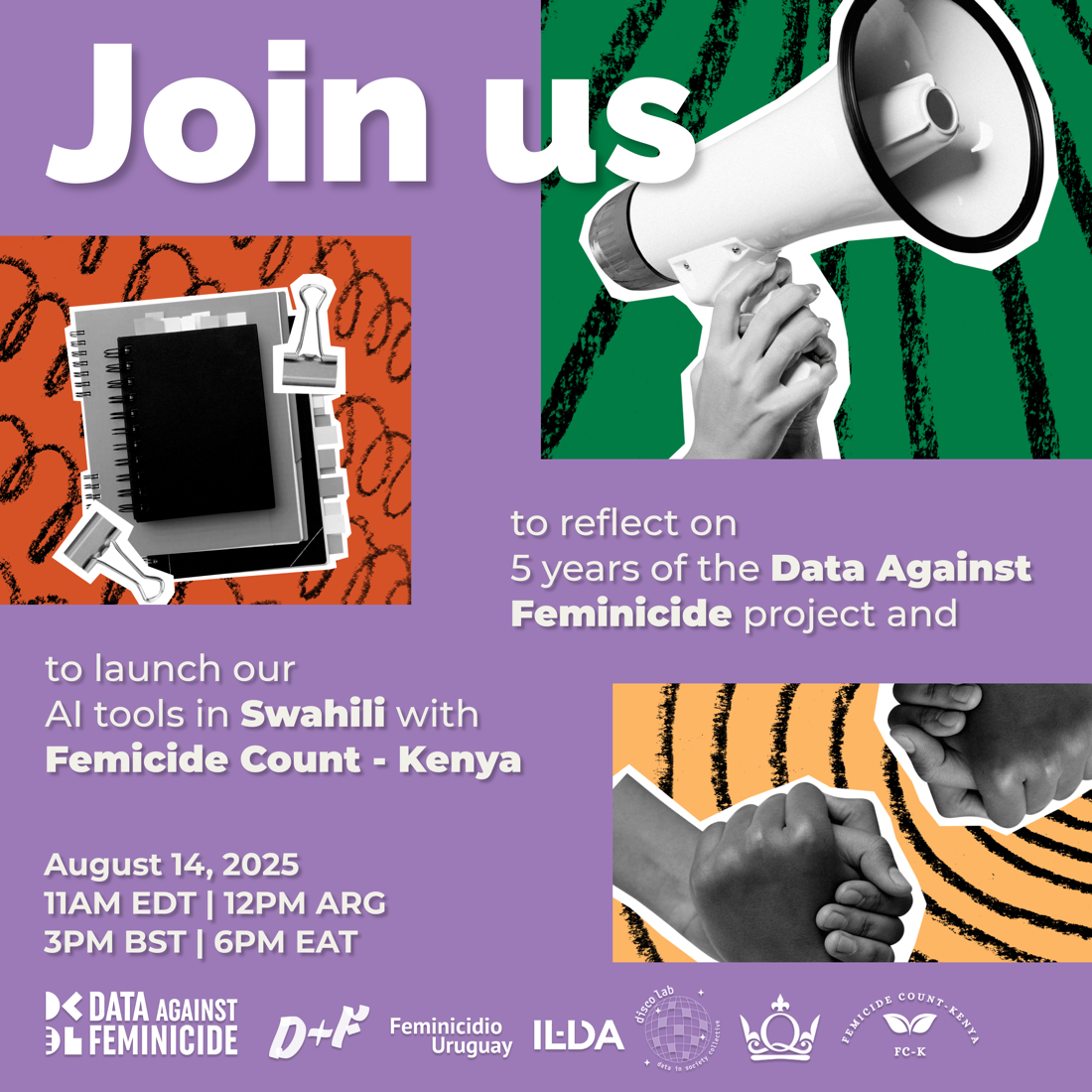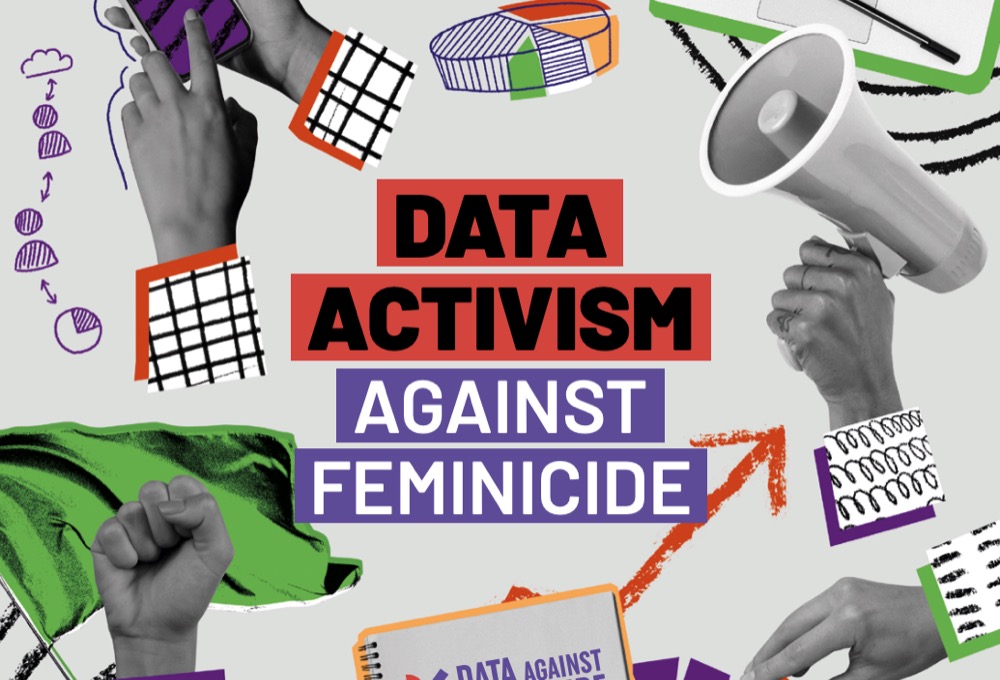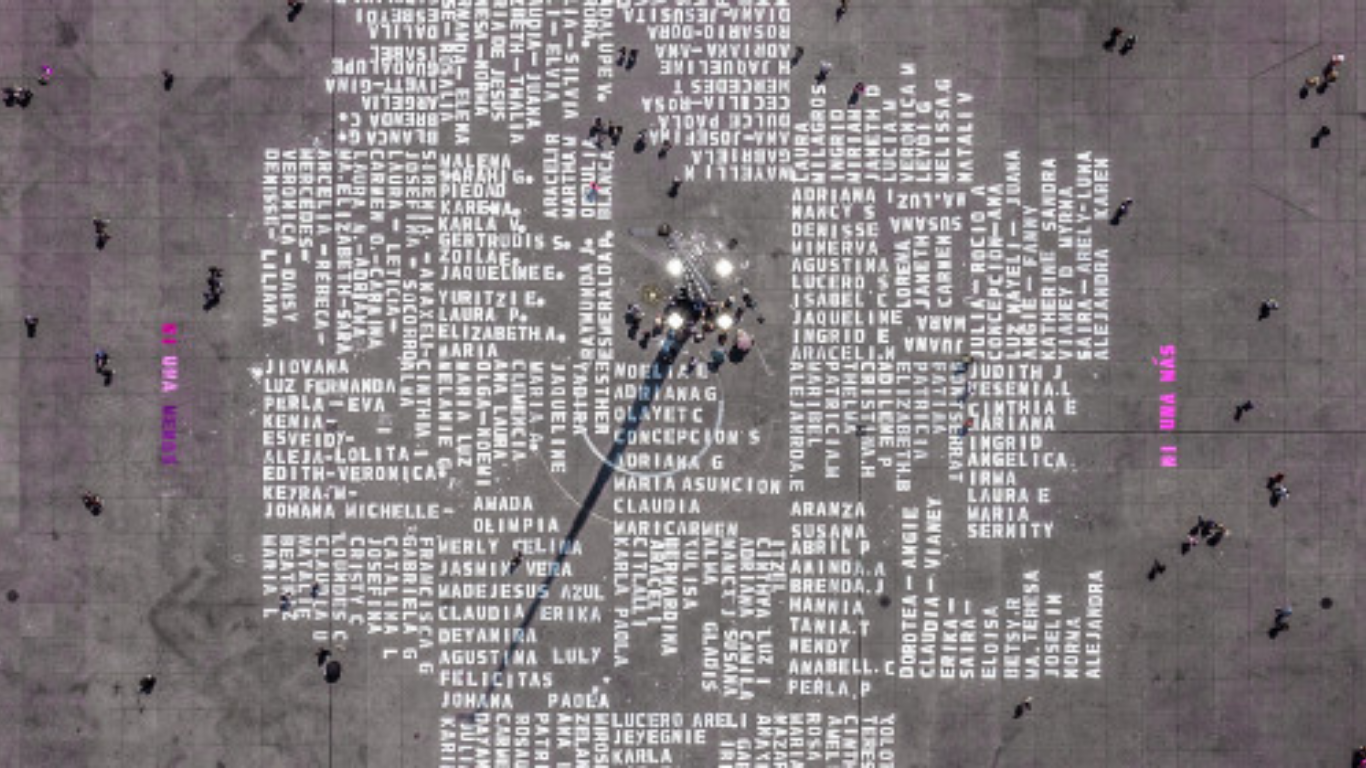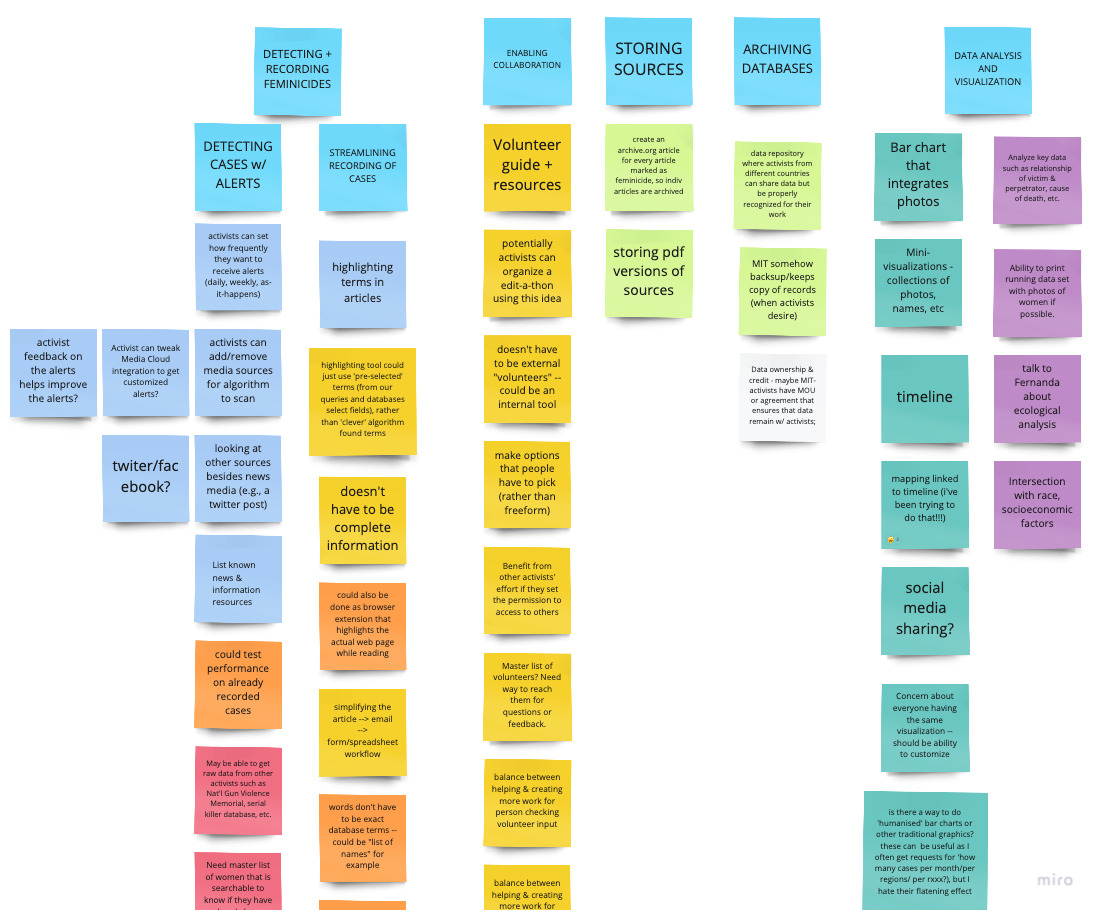Category: Data and Technology in the Feminist Struggle
-

5 years of Data Against Feminicide + Launch of tools in Swahili
To celebrate 5 years since the first community events of the Data Against Feminicide project, in August 2025, we held an online gathering to look back on all we have done together and to launch the Swahili version of our tools, co-designed with the amazing Femicide Count Kenya. Alessandra Jungs de Almeida and Isadora Cruxên presented key learnings…
-

Data Activism Against Feminicide (Cruxên & Jungs de Almeida, 2024)
What role does data play in addressing gender-based violence? This report summarizes the results of five years of collective work as part of the Data Against Feminicide project. Data Against Feminicide is a South-North participatory action research and design project that supports the work of activists and civil society organizations that produce data on gender-based…
-

Counting Feminicide: Data Feminism in Action (D’Ignazio, 2024)
What isn’t counted doesn’t count. And dominant institutions systematically fail to account for feminicide, the gender-based murder of women and girls, including cisgender and transgender women. In the face of this failure, Counting Feminicide foregrounds the work of data activists across the Americas who are documenting these kinds of murders and challenging the reigning logic…
-

Data Against Feminicide: The Process and Impact of Codesigning Digital Research Tools (Suárez Val et al, 2024)
Data Against Feminicide is an action research collaboration that aims to foster an international community of practice around femicide data. In this chapter, we introduce two tools we have co-designed and tested with activists to facilitate their work and ease the burdens on their workflow. Data Against Feminicide Email Alerts is an artificial intelligence-based system that detects…
-
Challenging (in)security: Missing Data and Counterdata Production on Feminicides in the Americas (Jungs de Almeida et al, forthcoming)
Jungs de Almeida, A., Cruxên, I., Radhakrishnan, R., & D’Ignazio, C. (forthcoming). Challenging (in)security: Missing Data and Counterdata Production on Feminicides in the Americas. En P. Anctil (Ed.), Feminist Security Studies in the Americas: Pushing the Fronteras. Palgrave Macmillan. Enlace externo
-

The revolution shall not be automated: On the political possibilities of activism through data & AI (Cruxên, 2024)
Reflecting on the “AI revolution”, Isadora Cruxên draws on her experience working with activists in the collaborative project Data Against Feminicide to argue that the politics of data and AI is, at heart, a politics of knowledge production. She invites us all to take part in this conversation. Cruxên, I. (2024, mayo 28). The revolution…
-
Data Activism about Feminicide in Brazil
(Due to a technical issue this recording is only available in Portuguese) In August 2023, we launched the Portuguese version of the Data Against Feminicide Email Alerts: our platform to support the monitoring of femicides through relevant news on the subject. In this event, we heard from activists from different regions of Brazil about their…
-
Technology and Anti-Feminicide Data Activists (Jungs de Almeida et al, 2023)
Data Against Feminicide project collaborates with Brazilian civil society organizations to develop digital technologies to support the struggle against feminicide. Jungs de Almeida, A., D’Ignazio, C., França, C., Cruxên, I., Kalil, M. E. X., Marques, R., Mariano, S., Negrão, T., & Siqueira, T. P. (2023, agosto 30). Tecnologia e Ativistas de Dados Contra o Feminicídio.…
-
Feminicide Data Activism (Collectif Féminicides Par Compagnons ou Ex at al, 2023)
This chapter weaves together, as nodes in a network of care, the experiences of activists collecting feminicide data in France, Germany, Kenya, Kyrgyzstan, Mexico, Russia, the United States, and Venezuela. In our work, we draw from a long genealogy of feminist research and activism on femicide/feminicide and gender-related violence. To contextualise our practices, we draw…
-
Human-Centered Computing and Feminicide Counterdata Science (D’Ignazio, 2023)
Data about feminicide can be conceived as missing data – data that are neglected by authorities and underreported in official registries. Activists and civil society groups in Latin America and beyond are increasingly stepping into these gendered data gaps to undertake feminist counterdata science – an explicit challenge to the inadequate data practices of governments…
